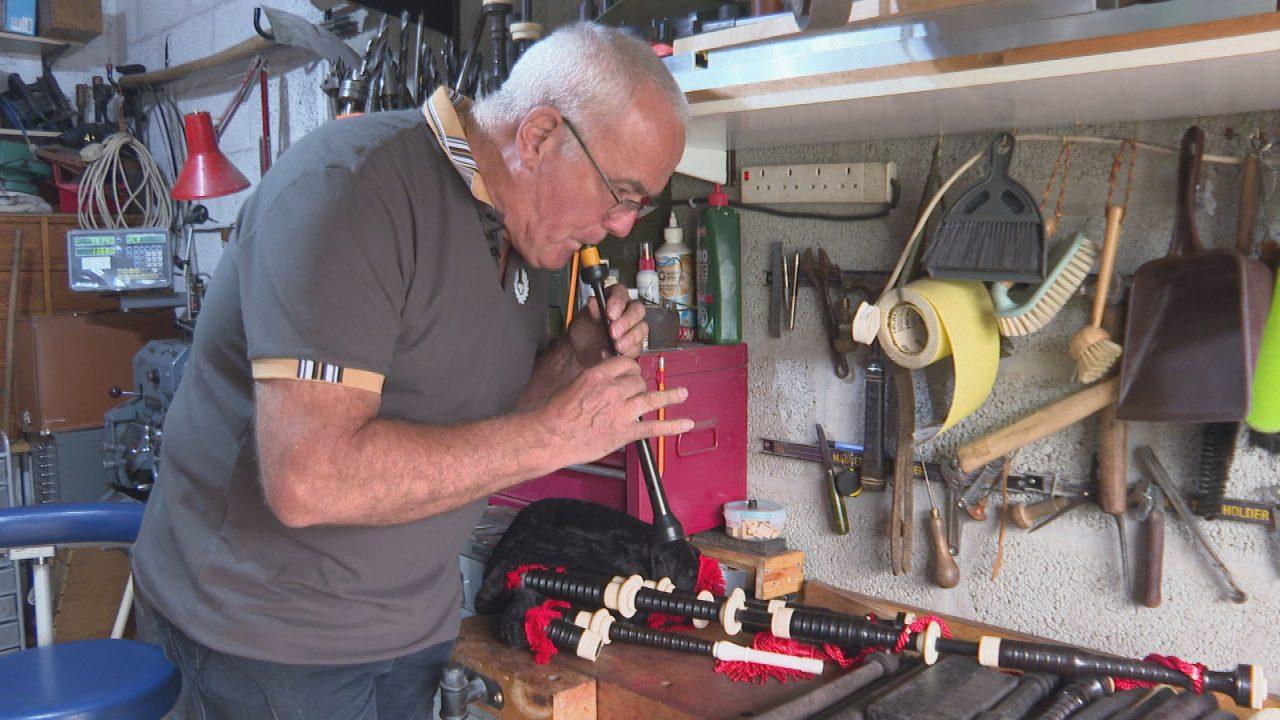Making bagpipes by hand has been Gibby MacNaught’s lifelong passion.
He couldn’t afford to buy the instrument as a schoolboy, so he tried making his own.
“That’s how it started off and it’s been with me ever since,” Gibby told STV News.
“I like to take these bits, make them into nice shapes and produce a nice sound out of them and that’s the enjoyment I get out of it. It will be with me until the end,” he joked.
Gibby is now one of the few remaining artisans in Scotland with the skills to handcraft bagpipes – a process that combines woodwork, leatherwork and reed making.
“I make everything myself, that includes the pipes, all the mounts, the chanters, the reeds. I make them myself as well as the bags,” he told STV News.
In Braemar, Alasdair Colquhoun is among the last to hand-stitch sporrans using centuries-old techniques.
After retiring to Royal Deeside, he took over the shop Lamont Sporrans and says the craft gives him a huge sense of achievement.
He explained: “On dress sporrans I tend not to use seal skin because it’s what the commercial people use. I have nothing against that but if I’m making something bespoke it has to be a little bit different, so that’s why I have all the skins hanging up. I use badger, coyote, raccoon, fox and beaver skins.
“With day sporrans I try to put my influence in there with hand carvings and make them personal.”
Bagpiping and sporran making have been central to Scottish culture for centuries.
But skills like Alasdair’s are now so rare, they have been placed on a so-called “red list” of endangered specialisms and are at risk of disappearing forever.
Daniel Carpenter from the charity Heritage Crafts said: “Many of them have very well established markets but because of the nature of the work and its handmade, they can’t upscale enough to create enough income to pass on the skills to the next generation.
“The apprenticeship system in the UK is really not set up for these small businesses.”
The charity is urging the Scottish Government to provide greater support for apprenticeships.
“There’s just not enough support for training and government funded apprenticeships are very hard to access. They’re not set up for our sector,” Mr Carpenter added.
Alasdair says he will continue as long as he enjoys the work, but admits he is saddened that he hasn’t found anyone to carry on after him.
“A lot of people now don’t like sewing needles because it’s hard. I don’t decry advances in technology, there’s nothing wrong with that, but I think if we lose all the hand crafts and skills it will be a crying shame. It will be a tragedy for Scotland.”
A Scottish Government spokesperson said: “Scotland has a proud heritage of traditional skills and these skills will continue to play a crucial part in ensuring a sustainable future for Scotland’s heritage.
“The Scottish Government is working with Skills Development Scotland, Historic Environment Scotland and the wider sector to see how we can better promote careers and opportunities in traditional skills.
“As part of this, the Scottish Government has supported the opening of Falkirk’s Lock 16 – a new national training centre focused on traditional skills. Additionally, the Developing the Young Workforce employer network has collaborated with employers and sector bodies to develop the Build Your Future programme, which helps to highlight careers in construction and heritage skills.”
Follow STV News on WhatsApp
Scan the QR code on your mobile device for all the latest news from around the country





























